- Home
- slideshows
- miscellaneous
- The precarious path of e-cig startup Juul: From Silicon Valley darling to $38 billion behemoth under criminal investigation
The precarious path of e-cig startup Juul: From Silicon Valley darling to $38 billion behemoth under criminal investigation
2004: At Stanford, product design grad students James Monsees and Adam Bowen create the idea for Ploom, Juul’s precursor.

2007: Monsees and Bowen co-found the vaporizer startup Ploom in San Francisco.
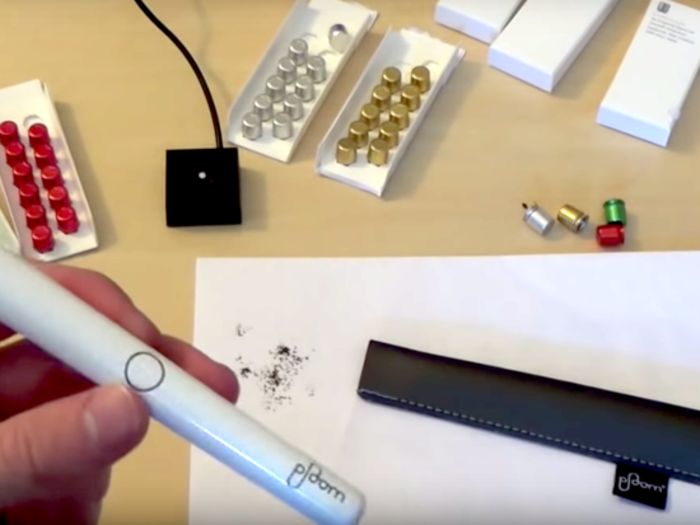
By February 2008, Ploom has raised $900,000 in venture funding, putting its valuation at roughly $3 million, according to PitchBook.
A 2011 description of the Ploom device, which sold for $75, describes it as a heat-not-burn product that can be filled with single-serve refills called "Ploom Pods." The pods can include tobacco or non-tobacco ingredients, it says.
Aug. 1, 2013: Ploom debuts the Pax with a launch party in San Francisco.
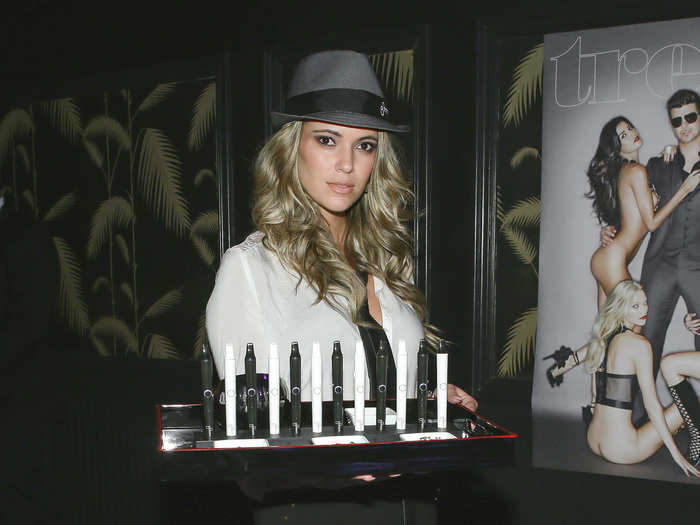
After raising close to $5 million, Ploom launches a device called the Pax, a vaporizer for loose-leaf tobacco that can also be used for cannabis.
To debut the device, Ploom hosts a launch party in San Francisco's trendy Mission District.
At this time, Ploom investors included Japan Tobacco, the maker of Winston and Salem cigarettes, along with software company Originate and angel investment group Sand Hill.
Feb. 16, 2015: Monsees and Bowen sell the Ploom brand and a vaporizer line to Japanese tobacco company JTI. They rebrand as Pax Labs.
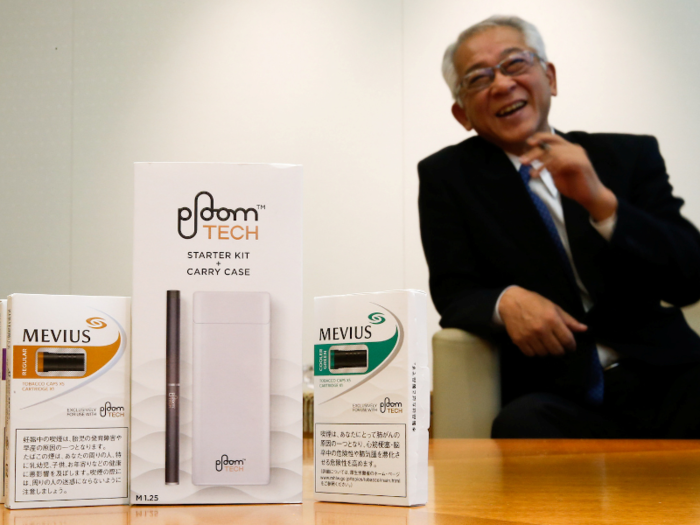
As part of the deal, JTI says in a statement that Ploom will buy back JTI's minority stake in the startup.
June 1, 2015: Pax Labs launches the Juul with a party in New York City.
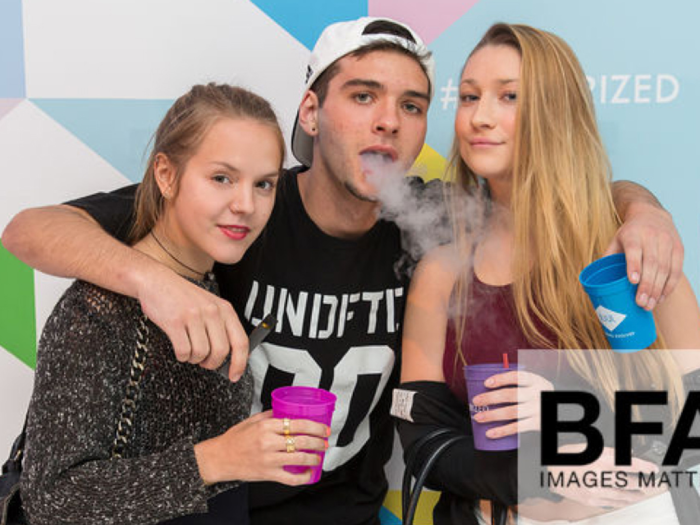
Pax debuts the Juul with a launch party in New York City.
A trove of images collected by Stanford researchers suggest that the campaign is focused on a young audience. Guests are invited to try Juul's products for free and share selfies on social media, Business Insider reports.
"Juul's launch campaign was patently youth-oriented," Robert Jackler, a practicing Stanford physician and the principal investigator behind the tobacco image collection, told Business Insider.
2016: Juul sales skyrocket 700%.

Juul devices gain popularity. Sales rise 700% over the course of the year, ABC 7 News reports.
July 1, 2017: Monsees and Bowen spin out Juul Labs as an independent company and name former Pax Labs CEO Tyler Goldman CEO.
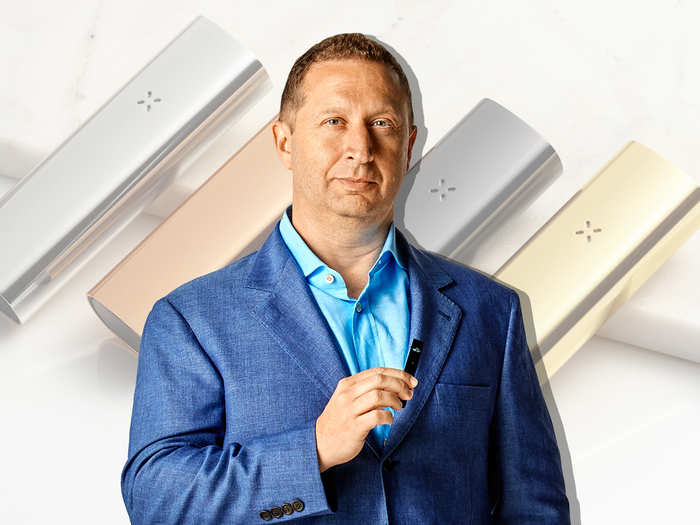
Goldman came to Pax from music streaming startup Deezer, then took over Juul Labs.
Nov. 2017: Juul is the best-selling e-cigarette on the market.
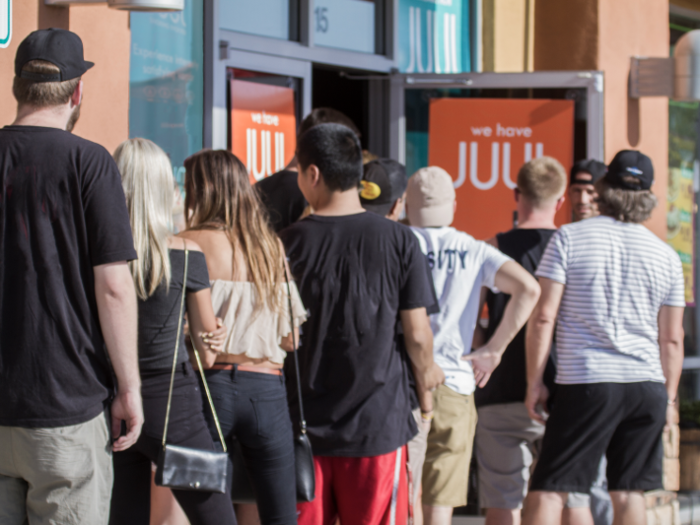
Juul says it's sold 1 million units. The company has also captured a third of the total e-cig market, according to Nielsen data.
Dec. 11, 2017: CEO Tyler Goldman leaves Juul. The company replaces him with Kevin Burns.
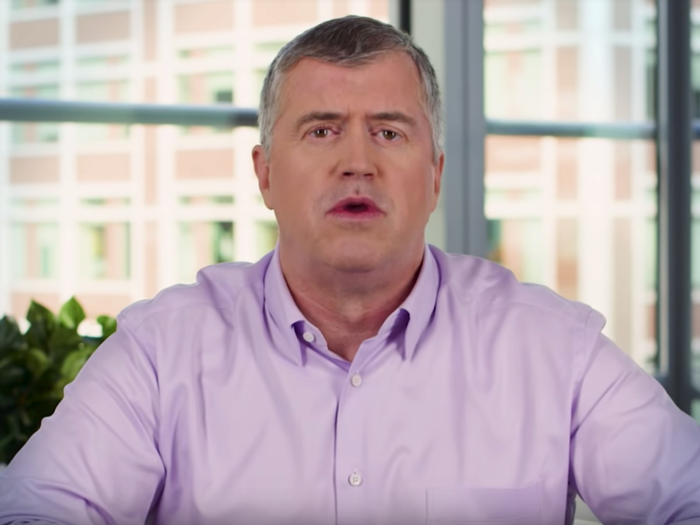
Goldman leaves Juul to "pursue new entrepreneurial activities." The company hires Kevin Burns from yogurt company Chobani as its new CEO.
Dec. 2017: Juul raises $112 million in venture funds and adds Nicholas Pritzker to its board.
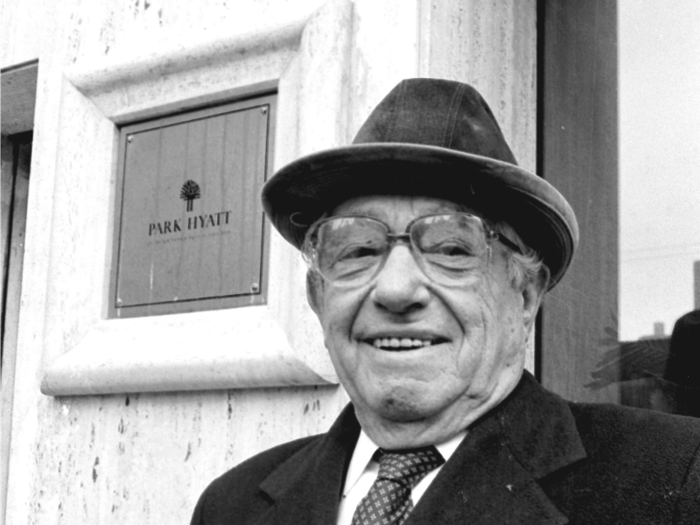
The fresh funds come from four firms: Tao Capital, M13, Fidelity, and Evolution, according to PitchBook.
Nicholas Pritzker, Tao's cofounder, joins Juul's board, CNBC reports. Pritzker is a member of the wealthy Pritzker family, who owned chewing-tobacco giant Conwood before selling it to tobacco giant Reynolds. The Pritzkers also founded and expanded the Hyatt Hotels chain.
On an undisclosed date, Tao Capital sells its stake in Juul to hedge fund Tiger Global and Manhattan Venture Partners.
March 2018: Dozens of outlets report that ‘Juuling’ is an epidemic at high schools.
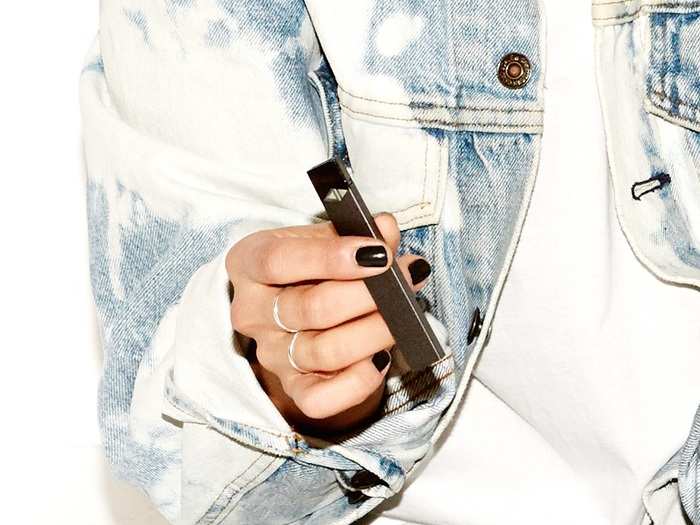
National news outlets including National Public Radio, USA Today, and Business Insider report that the Juul has a loyal and growing following among young people.
All of the reports say teens are taking to social media to brag about being able to sneak puffs in class or in the bathroom thanks to Juul's discreet design.
April 2018: Led by Commissioner Scott Gottlieb, the US Food and Drug Administration starts an ‘undercover blitz’ to crack down on sales of the Juul to minors.
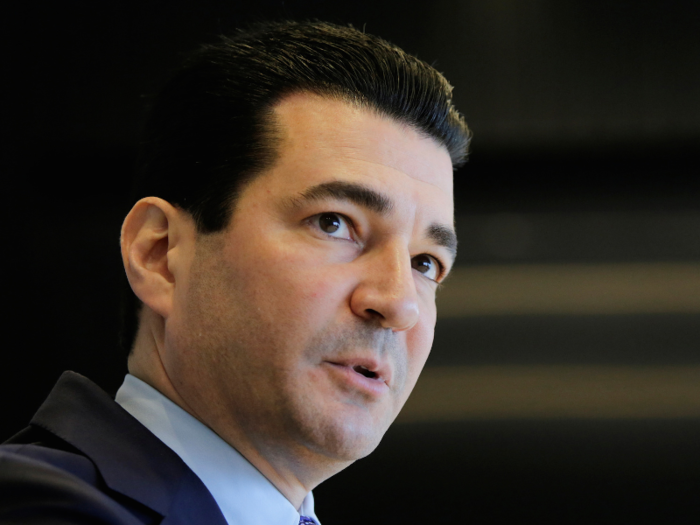
In what the FDA says is the largest coordinated enforcement effort in agency history, the FDA issues more than 1,300 warning letters and fines to retailers who it says are illegally selling Juuls and other e-cigarettes to minors. The FDA found the retailers by conducting what it calls "a nationwide, undercover blitz."
"Let me be clear to retailers," FDA commissioner Scott Gottlieb said in the statement, "this blitz, and resulting actions, should serve as notice that we will not tolerate the sale of any tobacco products to youth."
April 2018: Wall Street analysts warn that Juul is starting to encroach on Big Tobacco’s financial terrain and could negatively affect Altria stock.
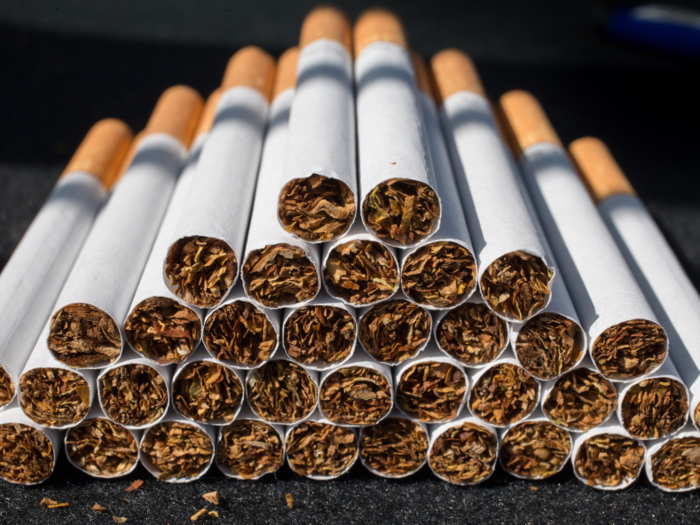
In a research note, Citigroup analysts warn investors that the Juul is beginning to disrupt tobacco stocks.
The note suggests that the rise of the Juul could bode poorly for tobacco companies — including Altria, British American Tobacco, and Imperial Brands — as sales are falling faster than they should.
"The US tobacco market is beginning to be disrupted by Juul," the analysts write, adding, "We don't expect underlying cigarette trends to improve much in the rest of 2018."
May 2018: Juul doubles its staff to 400 people.
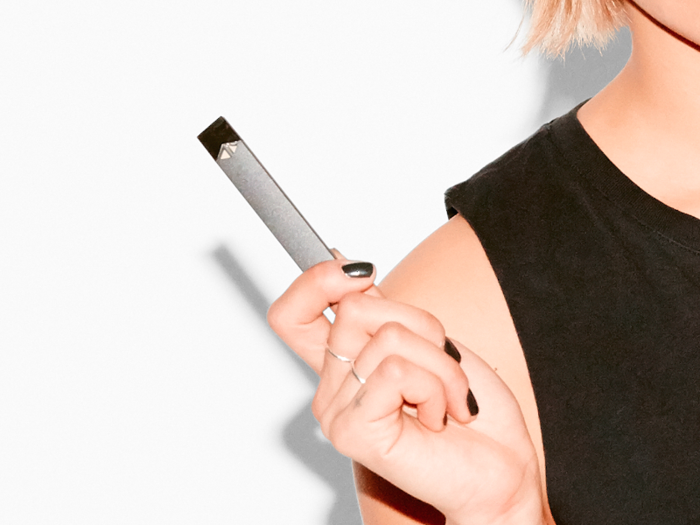
June 2018: San Francisco bans flavored e-cigs like the Juul, prompting an endorsement from Michael Bloomberg.
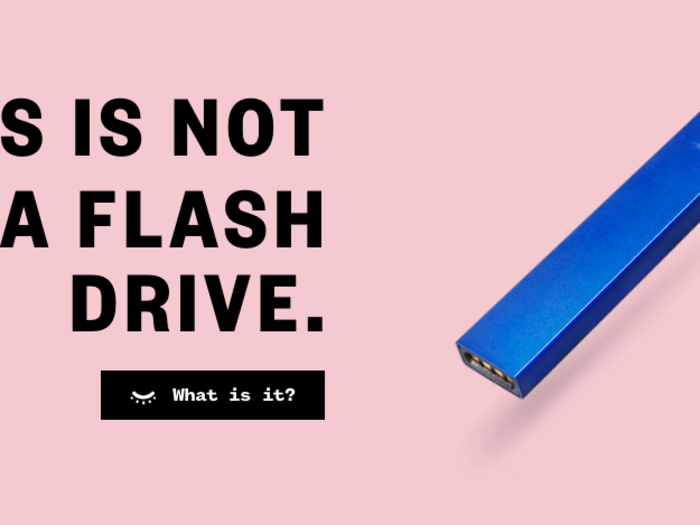
Former New York City Mayor and CEO of Bloomberg Philanthropies Michael Bloomberg calls the move "an important step forward for public health" and says it should embolden other cities and states to follow suit.
July 8, 2018: Wall Street analysts say Juul is reviving the formerly comatose e-cig market, which had been slumping since 2014.

In a research note, Morgan Stanley analysts credit Juul with "driving a revival in the US e-cig market," adding that sales of Juul devices "accounted for almost the entire incremental increase in US e-cig sales as a percent of total cigarette and e-cigarette sales in the last year."
July 10, 2018: Juul raises $1.2 billion in a round that values the company at more than $16 billion.
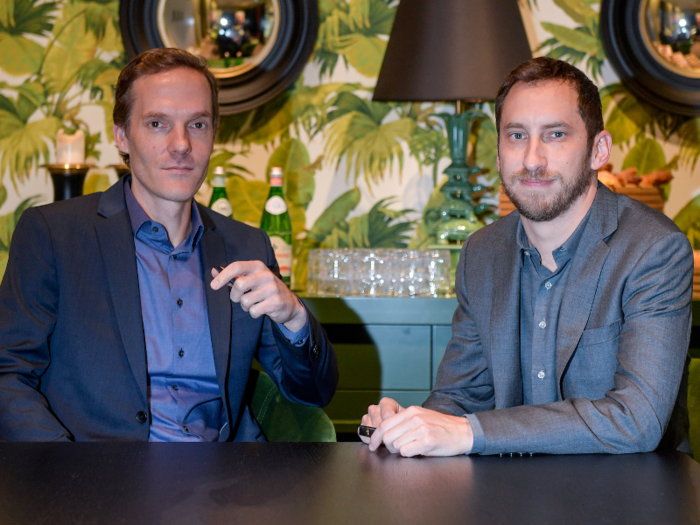
The seven investors in the round include a maker of marijuana therapeutics called Applied Biosciences, along with the venture firm Bracket Capital, hedge funds Darsana Capital and E Squared Capital, investment giant Fidelity, angel investor Sand Hill, and Tiger, according to PitchBook.
Aug. 21, 2018: Israel bans Juul products, calling them a ‘grave risk to public health’ because of their high nicotine content.
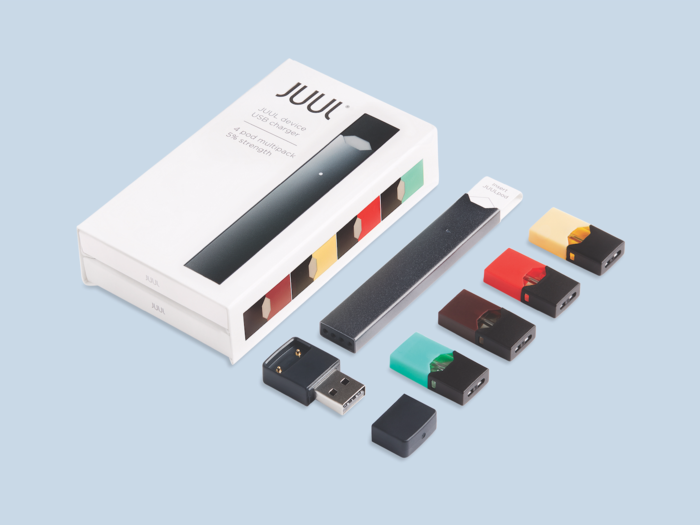
In a statement, Israel's Health Ministry says it's banning the sale and import of Juul devices because they contain more than 20 milligrams per milliliter of nicotine and present "a grave risk to public health," Reuters reports.
Sept. 11, 2018: The FDA deepens its crackdown on Juul and other e-cig makers.
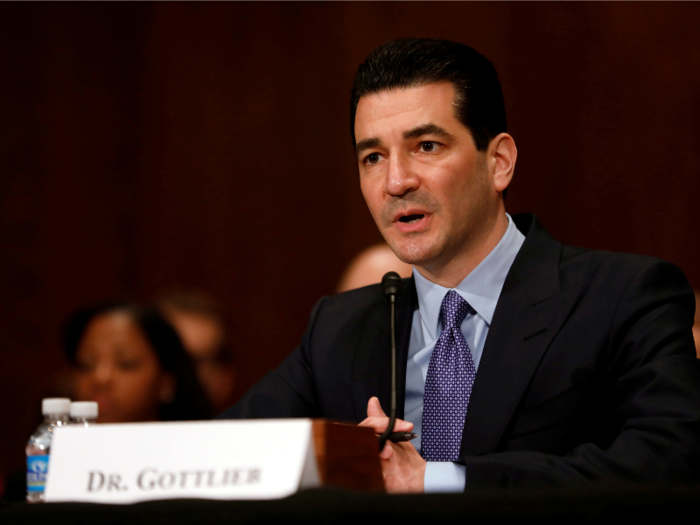
In a statement, Gottlieb says the FDA is working on creating a system to "properly regulate" e-cigarettes like the Juul.
He says the aim is two-fold: make e-cigarettes available as a less-dangerous alternative for adult smokers, but also keep them out of the hands of young people.
Oct. 2, 2018: The FDA surprises Juul at its headquarters and seizes 'thousands of pages of documents’ as part of a probe into its marketing practices.
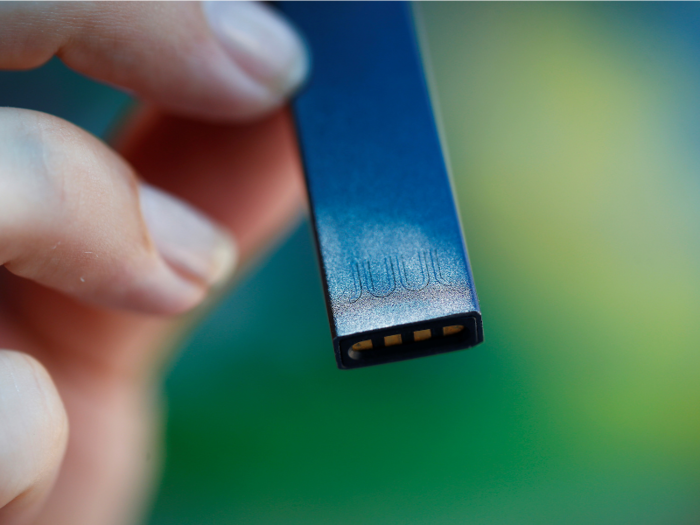
The agency is running an investigation into whether Juul marketed its products to teens, CNBC says.
The visit is an extension of the FDA's request in April for materials related to how Juul presented its products and whether they were designed to appeal to kids, according to CNBC.
Oct. 2018: Juul surges in popularity, now accounting for over 70% of the US e-cigarette market.
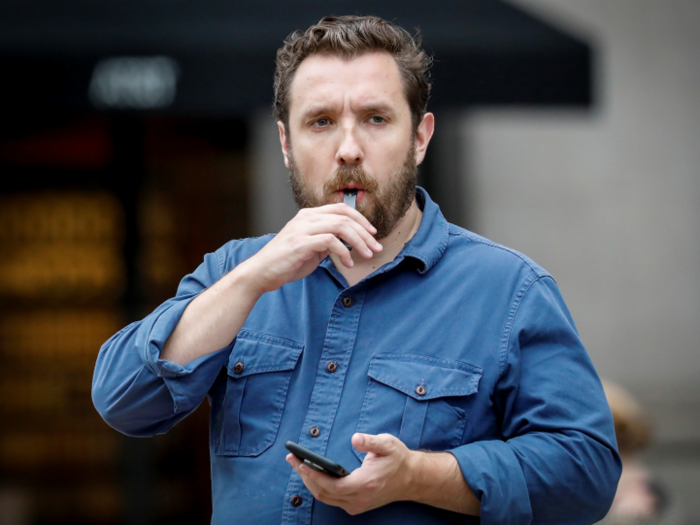
According to Nielsen data.
Nov. 15, 2018: The FDA announces plans to curb flavored e-cig sales after reports that youth vaping has ballooned 78%.
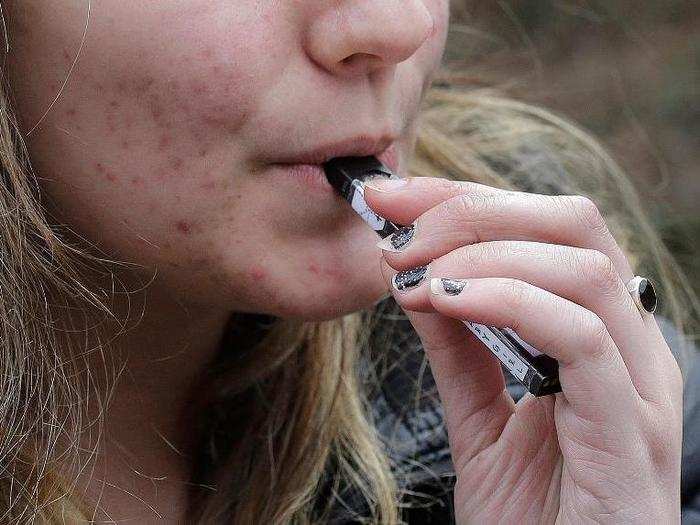
2018: The Federal Trade Commission begins investigating whether Juul marketed its products to minors.

The Federal Trade Commission is looking into Juul's use of influencers and other marketing tools to appeal to young people, the Wall Street Journal reports in August 2019.
According to the Journal, the FTC's probe began before it started reviewing a deal between Marlboro maker Altria and Juul in December 2018.
Dec. 20, 2018: Altria buys 35% of Juul for $12.8 billion, bumping Juul’s valuation to $38 billion. Gottlieb accuses both companies of backing away from pledges to curb youth vaping.
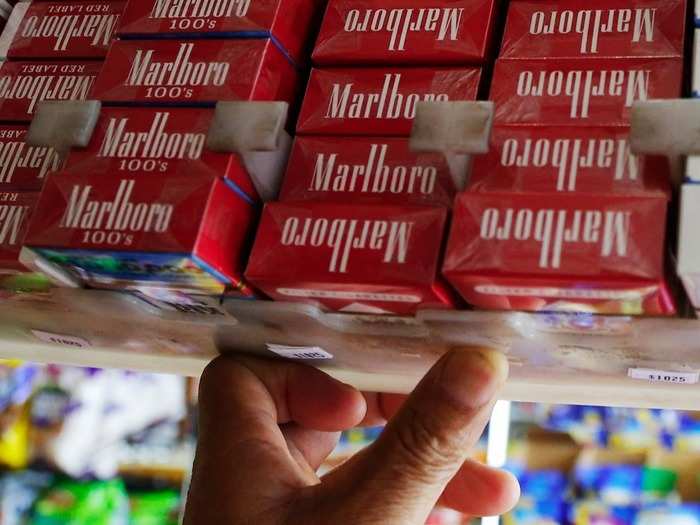
In what the Silicon Valley Business Journal calls "the biggest investment ever in a US venture-backed company," Marlboro and Parliament cigarette-maker Altria pays $12.8 billion for a third of Juul. Altria holds more combustible cigarette market share than the next 7 brands combined, according to the CDC.
Juul, which has an annual revenue of about $2 billion at the time, also receives a $2 billion bonus from Altria to distribute among its 1,500 employees, CNBC reported. That would have been about $1.3 million per person.
On the heels of the deal, FDA commissioner Scott Gottlieb calls out both companies, saying they are backing away from previous pledges to fight teen vaping.
March 5, 2019: In a surprise announcement, Gottlieb announces he’s leaving his post as FDA Commissioner.
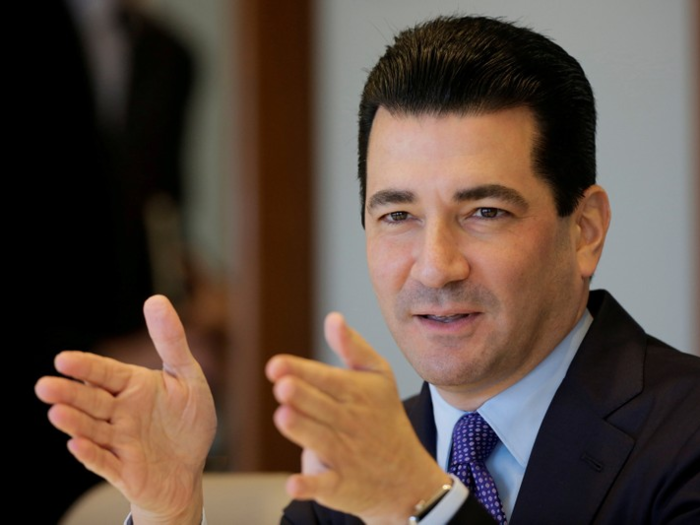
Gottlieb, a well-liked figure who spent just two years steering the country's top food and drug regulator, says he is leaving in a month to spend more time with his family in Connecticut.
The commissioner had made a name for himself as both a vocal critic of e-cigarette startups like Juul and a speedy approver of new pharmaceutical drugs.
In a resignation letter, Gottlieb writes that one of his accomplishments at FDA was taking actions against "bad actors that put Americans at risk."
March 13, 2019: Gottlieb announces a crackdown on flavored e-cig sales.
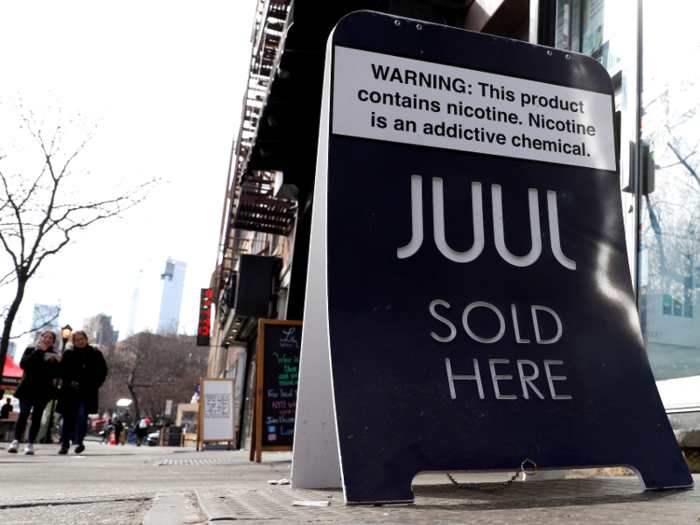
Roughly a week after announcing his departure from the FDA, Gottlieb releases a plan to crack down on flavored e-cigarette sales at gas stations, pharmacies, and convenience stores. The plan would also crack down on websites without buffers against youth purchases, such as age-verification software or quantity limits.
April 3, 2019: The FDA says it’s looking into a ‘potential safety issue’ related to seizures tied to vaping.

In a statement, Gottlieb says his agency has seen reports that suggest that a small number of e-cigarette users (35 cases between 2010 and early 2019) have experienced seizures after vaping.
By August, the FDA says it's received a total of 127 reports — but notes that the new figure may simply mean that more people are coming forward, not necessarily that the cases are increasing.
Gottlieb also notes that seizures are known potential side effects of nicotine poisoning and says the agency will continue exploring the potential connection.
April 8, 2019: Democrats in the US Senate launch a probe into Juul’s deal with Altria as well as its social media and advertising practices.
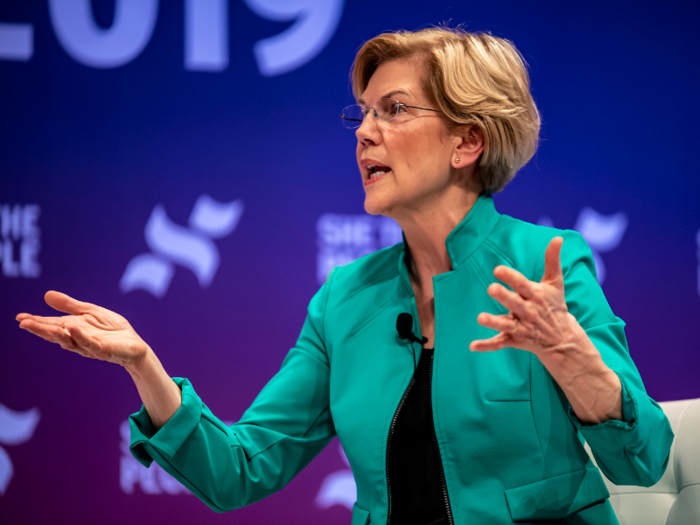
Eleven Democratic senators, including Senate Democratic Whip Dick Durbin and presidential candidate Elizabeth Warren, write a letter to Juul demanding the company answer questions about its advertising practices and its deal with Altria, CNBC reports.
June 13, 2019: The US House of Representatives announces an investigation of Juul’s marketing and the Altria deal.
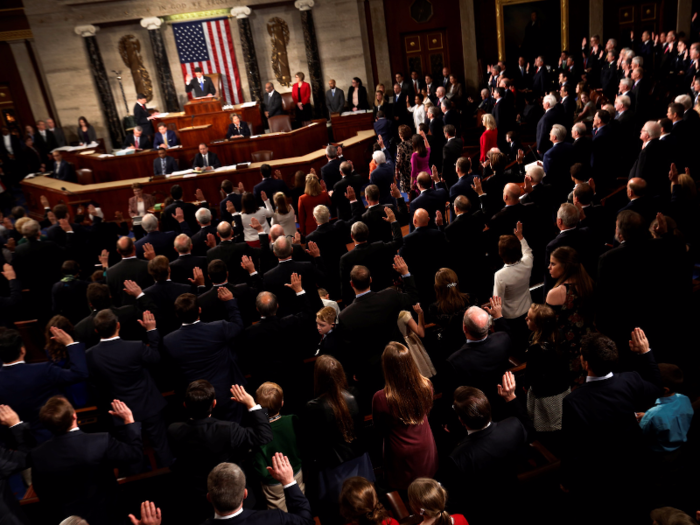
House Democrats launch their own investigation into Juul, Fortune reports.
July 16, 2019: Juul’s CEO apologizes to parents of teens addicted to its vaping products.
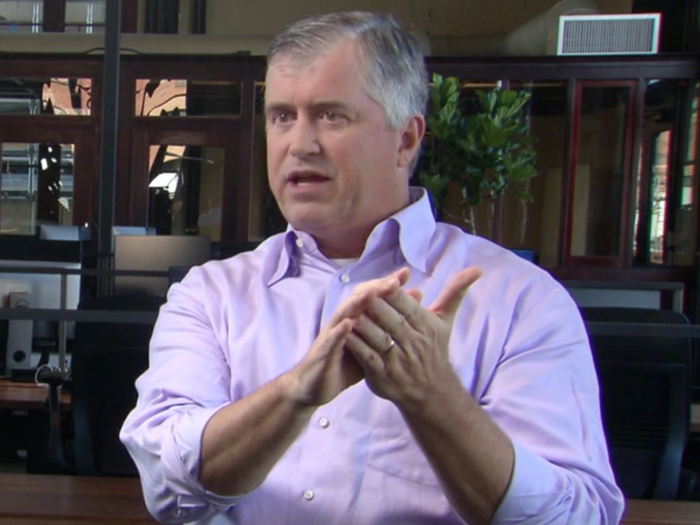
In a CNBC documentary, Juul Labs CEO Kevin Burns issues an apology to parents of teens who are addicted to the company's vaping products.
"First of all, I'd tell them that I'm sorry that their child's using the product," Burns says.
July 25, 2019: Officials in Wisconsin warn of 8 cases of severe lung disease in teens who’d vaped. It's unclear what kinds of products or substances are involved.
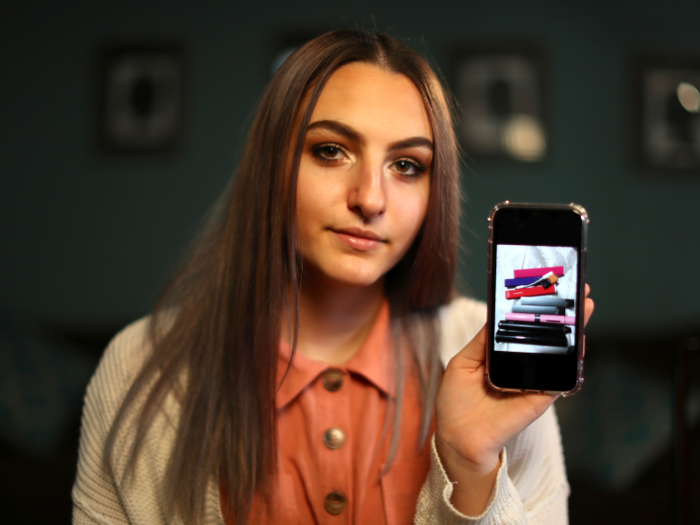
In July, Wisconsin's chief medical officer pens a memo to healthcare providers warning them about a cluster of sick adolescents who'd used e-cigarettes. Chest x-rays of the teens revealed similarities in lung damage, he says.
The following month, the CDC releases an emergency notice about 30 cases of vaping-related lung illness in Wisconsin.
In mid-August, officials report the first death tied to vaping-related lung illness: an adult in Illinois.
By September, the CDC and the FDA say there have been 530 confirmed and probable cases of the mystery illness since June. Seven people have died. The investigation is still ongoing, and officials have yet to find a substance or brand that's common among all the cases.
Aug. 16, 2019: Juul raises $785 million in equity and debt financing from San Francisco hedge fund Poseidon Asset Management.
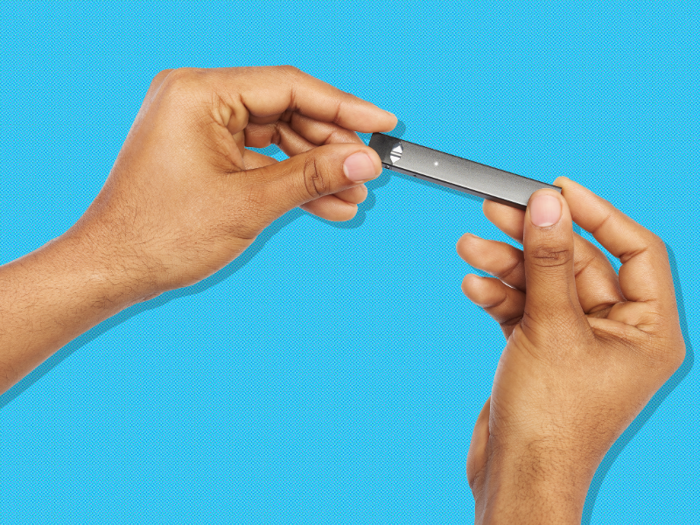
The funds will be used to speed Juul's expansion overseas, according to PitchBook. The figure brings the company to a total of $14.2 billion in funds raised.
Aug. 29, 2019: Bloomberg says Juul devices were involved in 3 reports of seizures linked to vaping.
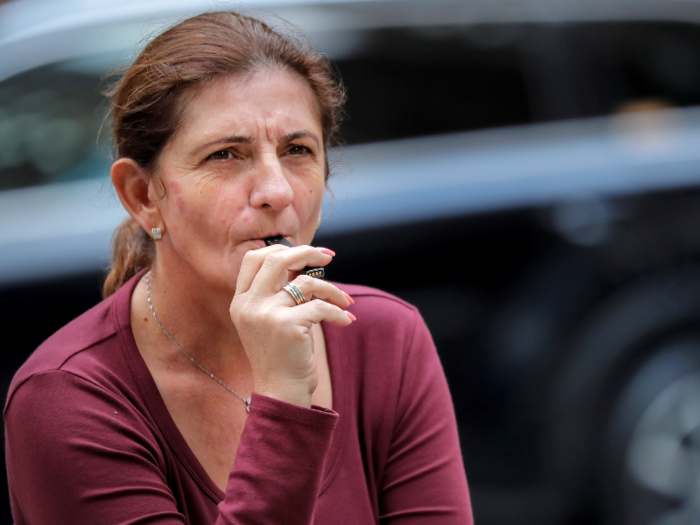
In three reports submitted to the FDA, people said they or their children had used a Juul before experiencing seizures, Bloomberg News reports. Bloomberg obtained the reports through a public records request.
In two of the three reports, the FDA wasn't able to officially confirm that a Juul device was involved, according to Bloomberg.
Aug. 29, 2019: Juul’s CEO warns people against using Juuls and says vaping’s long term health effects are unknown.
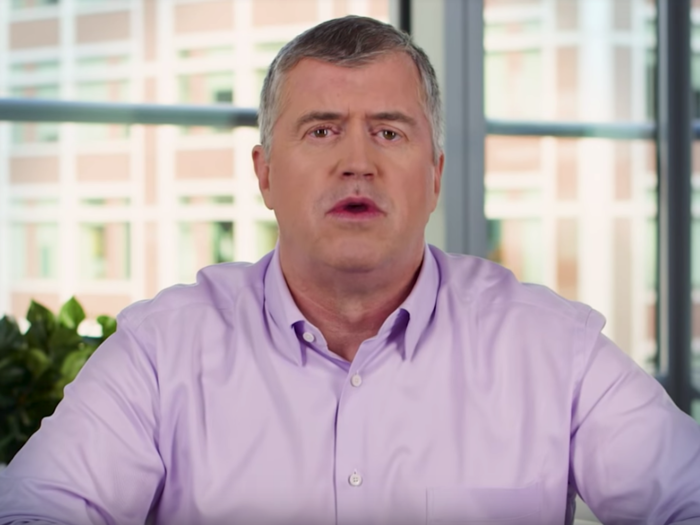
Sept. 9, 2019: The FDA slams Juul for portraying its e-cigs as ‘totally safe’ and marketing them to kids at schools.
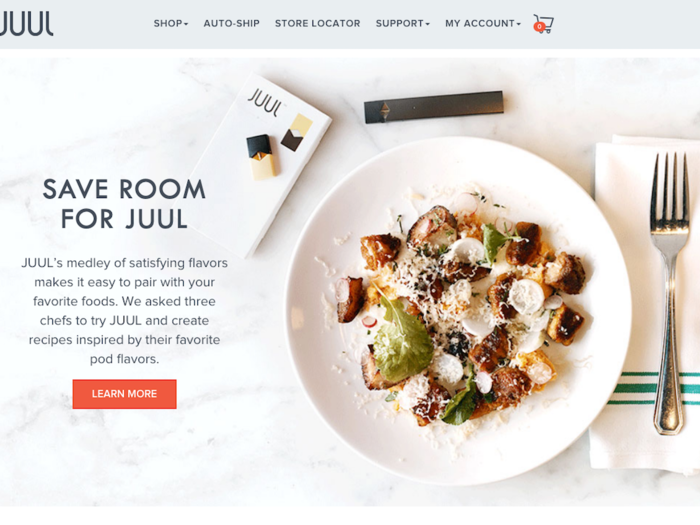
In a warning letter, the FDA says Juul wrongly painted its e-cigarettes, known in the industry as ENDS, as safer than cigarettes and marketed them intentionally to young people.
"Referring to your ENDS products as '99% safer' than cigarettes, 'much safer' than cigarettes, 'totally safe,' and 'a safer alternative than smoking cigarettes' is particularly concerning because these statements were made directly to children in school," the FDA letter reads.
"Our concern is amplified by the epidemic rate of increase in youth use of ENDS products, including Juul's products," the letter adds.
Sept. 17, 2019: Juul sales are halted in China for unclear reasons.

A selection of flavored Juul products go up for sale on two online Chinese marketplaces, JD.com and Tmall, run by Alibaba Group Holding Ltd. but are removed within a week, the Wall Street Journal reports. Both retailers declined to say why.
Juul had long been planning to launch in China, where more than 300 million people smoke, according to the World Health Organization. Its nicotine refills, or Juul Pods, are manufactured in Shenzhen, China.
Sept. 18, 2019: India bans vaping, citing the ‘impact of e-cigarettes on the youth.’
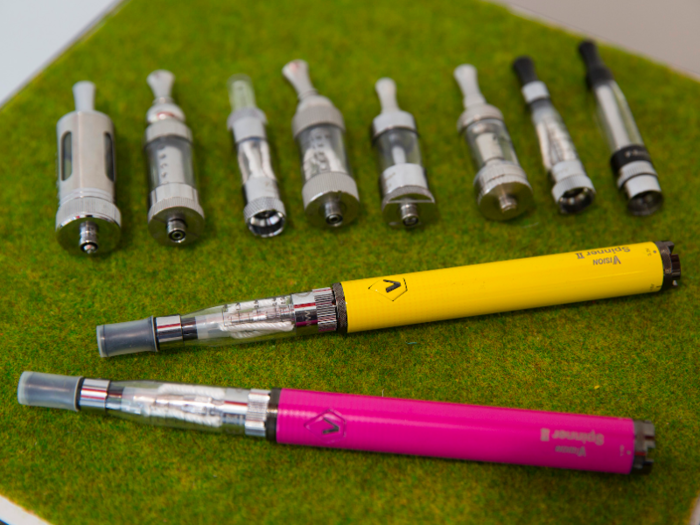
India outlaws the production, sale, import, and advertising of e-cigarettes, citing the need to stop the "impact of e-cigarettes on the youth," BuzzFeed News reports. Penalties include jail time and fines of up to $7,000.
Juul had been planning to launch in India, home to more than 106 million smokers — second only to China — by the end of this year.
Sept. 23, 2019: The US attorney’s office of the Northern District of California has reportedly launched a criminal investigation into Juul.
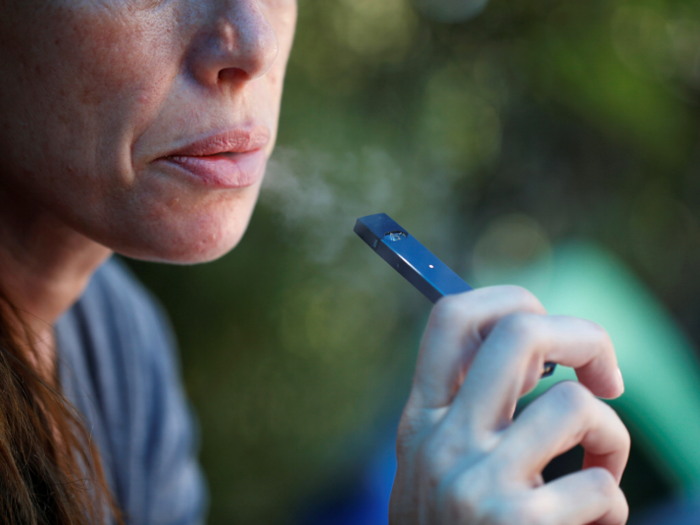
The Wall Street Journal reports that federal prosecutors in the US attorney's office of the Northern District of California are conducting a criminal investigation of Juul. Further details, such as the focus of the investigation, were not available, and Juul didn't respond to a request for comment from Business Insider.
Meanwhile, several other investigations are ongoing, including a probe by the Federal Trade Commission focusing on whether Juul marketed to teens and an FDA investigation focused on marketing, outreach, and Juul's uniquely high nicotine content.
Popular Right Now
Popular Keywords
Advertisement